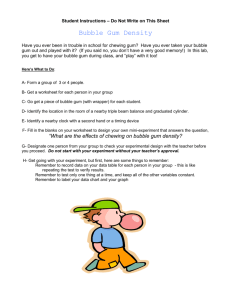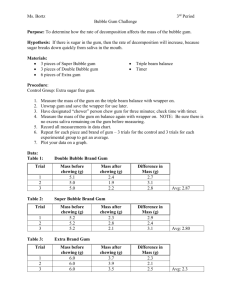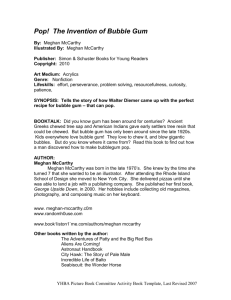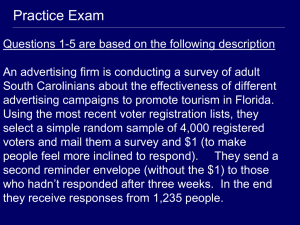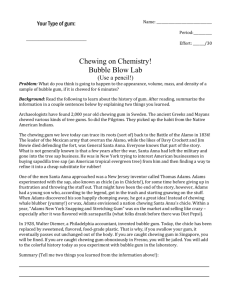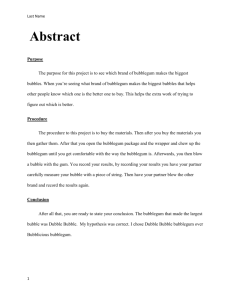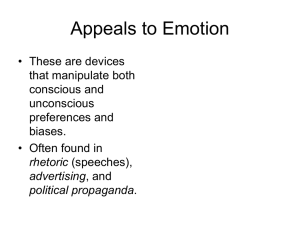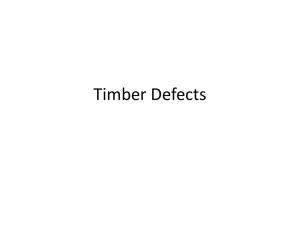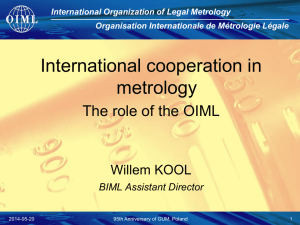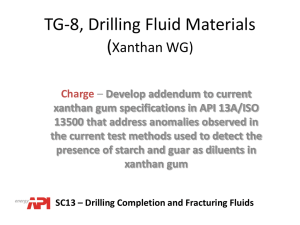Food Bites - Chewing and Bubble Gum 2011
advertisement
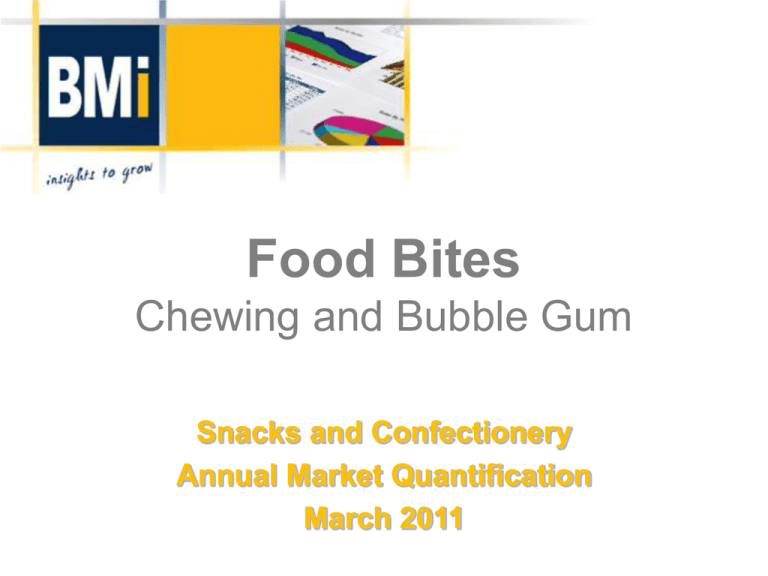
Food Bites Chewing and Bubble Gum Snacks and Confectionery Annual Market Quantification March 2011 Market Context The difference between chewing and bubble gum is in the gum base used to manufacture them. The gum base for bubble gum is firmer and more elastic to allow the user to blow gum bubbles. Chewing gum on the other hand is made of a more rigid base that does not allow for bubble blowing. Chewing gum has been proven to help freshen breath, relieve stress, ease boredom, increase concentration as well as aid in weight loss management; among other things. Consumption of chewing and bubble gum has been on the increase in the South African market over the past decade, with both these markets showing signs of maturity in recent years. Regional distribution for chewing and bubblegum follows a similar profile, with above 70% of the volumes consumed in the high population density areas of Gauteng, KwaZulu-Natal and Western Cape. Channel distribution however differs by category. Chewing gum distribution is concentrated to the general retail channel which contributes an almost 50% share to market volume. Bubble gum channeling on the other hand is dominated by independent wholesale which controls over one third of the market. 2 2010 Category Shares 3 Volatile history for gums volume 4 Chewing gum – volume down, value up • Chewing gum contributed 11.2% to gum volumes and 23.0% to the category’s value in 2010. Although the product experienced volume decline of 4.2%; the greatest decline since 2000; it was more valuable in rand terms because of the price increase seen during the base year. • Future volumes for chewing gum are expected to remain stable with a marginal increase of 1.4% expected in 2011. Expected growth in this category is attributed to new flavour introductions and packaging re-invention seen in the last quarter of 2010 which are expected to attract new customers to the category. • The metropolitan areas of Gauteng, KwaZulu-Natal and Western Cape continue to dominate distribution for chewing gum with a combined 71.9% share of the category’s output. General retail continues to be the most popular channel for chewing gum with 48.1% of the volumes consumed through this channel. 5 Bubble gum volumes decline • 2010 saw a 3.2% decline in the volume of bubble gum consumed in South Africa. The decline seen in the bubble gum market was attributed to the longer school holidays as a result of the FIFA Soccer World Cup, which resulted in reduced sales from school going children; the prime target market for bubble gums. Other factors leading to this decline include declines in consumer spending which resulted in less pocket money for school children as well as consumers focus on essential food stuff. • While local production of bubblegum declined in 2010, import volumes increased significantly. Some local manufacturers of bubble gum mentioned that cheaper imports were posing a threat to them as retailers and wholesalers alike are price driven and tend to prefer to stock cheaper brands. • The future for bubble gums is positive, with 4.3% growth forecast for 2011 with bubblegum expected to recover all lost volumes. 6 Food Bites Chewing and Bubble Gum For more information, contact: Jan Wegelin Research Manager Tel: (011) 615 7000 Mobile: 082 938 0744 www.bmi.co.za

